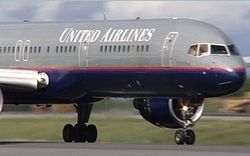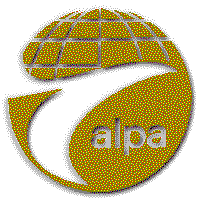Considered His Emotions Too High To Be Safe, Reportedly Caused
By Argument On Union Action
A United pilot in Salt Lake City may have taken a page from the
flight instructors playbook Thursday as he took the I.M. S.A.F.E.
checklist and determined his E for emotion was too high to fly his
flight that day.

Or at least that’s how he explained it to passengers on
the cabin intercom according to one passenger.
According to USA Today, the pilot, who may have been involved in
a labor-related dispute with colleagues, said that he didn't feel
he could fly safely, said Paul Jacobson, an energy company
executive who was aboard United Flight 416 from Salt Lake City to
Denver.
The airline re-routed its customers on other flights and will
give them "goodwill gestures," which may include miles and travel
certificates for the inconvienince according to United spokeswoman
Robin Urbanski. She added in the emailed statement the flight was
canceled according to company procedures designed to ensure flight
crews are prepared to fly.
Urbanski did not dispute the passengers account but declined to
identify the pilot or provide further details of the incident.
"We will conduct a full investigation of the
events leading up to the cancellation and take appropriate,
necessary action," she wrote in the e-mail.
David Kelly, a spokesman for the Air Line Pilots Association,
which represents United pilots, said the union won't comment on the
incident.
Federal Aviation Administration spokeswoman Alison Duquette says
it's up to the airlines to determine when and how pilots can walk
away from the cockpit if they feel unfit to fly.
 "But
we'd expect that if the pilots aren't fit to fly, they would not
fly," she said.
"But
we'd expect that if the pilots aren't fit to fly, they would not
fly," she said.
Jacobson said he witnessed the pilot in a heated cellphone
conversation at the gate before he boarded, and overheard the pilot
stating that "he was going to complain to the union."
It wasn’t until the passengers were seated when the pilot
made the announcement.
"I'm roughly paraphrasing here, but the pilot came on the PA and
said, 'some of you may have witnessed an incident I was involved in
at the gate. I'm not going to go into the details, but it was an
interpersonal confrontation that upset me significantly to the
point where I'm not focused enough to fly you to Denver. I feel
like I may not be calmed and focused enough to fly to Denver for
another hour,' " Jacobson said.
"I'm going to give him credit for standing in front of people
and saying that," Jacobson added. "Still it was a very unusual
situation."
Passengers were allowed to get off the plane until it was ready
to leave, and most people did so after the announcement, Jacobson
said.
According to Jacobson who quoted another passenger who spoke
directly to the crew, the incident reportedly stemmed from the crew
of another United flight observing the pilot wearing his hat
contradicting the pilots union request urging pilots to remove
their hats. The request asks pilots to do so when they "are likely
to be viewed by management," as a form of protest, according to a
notice on ALPA's website.
"In the concourse, on the jetway, wherever. Show solidarity with
your fellow pilots, show management our solidarity. Don't wear your
hat," the notice stated.
The January 15 statement instructed members to adopt the
practice because "now is the time to show management that this
pilot group is serious about regaining what was stripped from us
during bankruptcy."
As reported by ANN, the battle between
United’s workers and management continues to get more heated
with recent announcements of cutbacks and unpopular executive
incentive plans. Just last week hundreds of United employees,
including pilots, flight attendants and machinists, rallied in
Southern California to protest the airlines decision to set aside
about $130 million worth of stock to fund the new incentive plan
for executives while the company moves forward cutting routes and
laying off up to 1,600 employees.
 ANN's Daily Aero-Linx (04.30.25)
ANN's Daily Aero-Linx (04.30.25) ANN FAQ: Turn On Post Notifications
ANN FAQ: Turn On Post Notifications Classic Aero-TV: Agile Aeros Jeff Greason--Disruptive Aerospace Innovations
Classic Aero-TV: Agile Aeros Jeff Greason--Disruptive Aerospace Innovations Aero-News: Quote of the Day (04.30.25)
Aero-News: Quote of the Day (04.30.25) ANN's Daily Aero-Term (04.30.25): Expedite
ANN's Daily Aero-Term (04.30.25): Expedite




